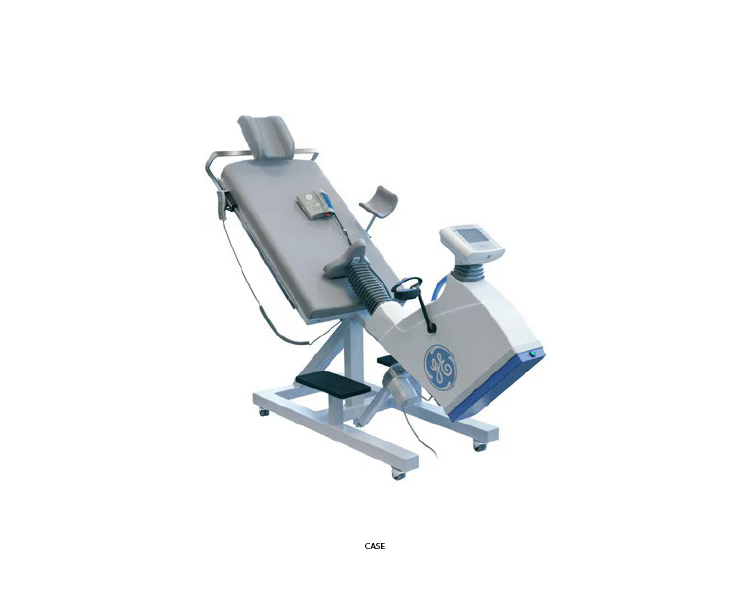CASE
The CASE Stress Testing System is an advanced diagnostic tool specifically designed for exercise stress testing. It is utilized to assess how the heart responds to physical exertion, aiding in the diagnosis of various cardiac conditions. The system combines high-quality ECG recording, sophisticated analysis software, and user-friendly interface to deliver reliable and accurate results. The integration with other GE Healthcare diagnostic systems makes it a versatile solution for cardiology practices.
Key Features of CASE
1. High-Quality ECG Recording:
• 12-Lead ECG Monitoring: Provides continuous, high-resolution ECG monitoring during exercise tests.
• Real-Time Data Acquisition: Captures and displays real-time ECG data to monitor patient response during the test.
2. Advanced Analysis Tools:
• Automated Interpretation: Uses advanced algorithms to automatically interpret ECG changes, detect arrhythmias, and assess ST-segment deviations.
• Customizable Protocols: Allows customization of stress test protocols to suit specific patient needs and clinical scenarios.
3. User-Friendly Interface:
• Intuitive Software: Features a user-friendly interface that simplifies test administration and data analysis.
• Interactive Display: Provides clear, interactive displays of ECG waveforms and other vital parameters.
4. Comprehensive Reporting:
• Detailed Reports: Generates comprehensive, customizable reports that include ECG data, heart rate response, blood pressure readings, and other relevant metrics.
• Trend Analysis: Offers tools for analyzing trends over time, aiding in long-term patient management.
5. Connectivity and Integration:
• EHR Integration: Seamlessly integrates with electronic health records (EHR) systems for efficient data sharing and management.
• Network Connectivity: Supports network integration, allowing data to be accessed and reviewed from multiple locations.
6. Safety and Monitoring:
• Real-Time Monitoring: Continuous monitoring of patient’s ECG, heart rate, and blood pressure to ensure safety during the test.
• Emergency Protocols: Includes features for immediate response to adverse events during the stress test.
Clinical Applications of CASE
1. Diagnosis of Coronary Artery Disease (CAD):• Ischemia Detection: Identifies signs of myocardial ischemia, such as ST-segment depression or elevation, indicating the presence of coronary artery blockages.
• Symptom Assessment: Correlates chest pain, shortness of breath, and other symptoms with ECG changes during exercise.
2. Exercise Tolerance Evaluation:
• Functional Capacity: Measures the patient's exercise capacity, which is crucial for assessing functional status and prognosis in various cardiac conditions.
• Rehabilitation Guidance: Provides data to guide cardiac rehabilitation programs and track patient progress.
3. Assessment of Arrhythmias:
• Arrhythmia Detection: Identifies exercise-induced arrhythmias, including atrial fibrillation, ventricular tachycardia, and other abnormal rhythms.
• Risk Stratification: Helps in stratifying patients at risk for sudden cardiac events.
4. Preoperative Evaluation:
• Surgical Risk Assessment: Assesses cardiac risk before non-cardiac surgeries, especially in patients with known or suspected heart disease.
• Fitness for Surgery: Evaluates the patient’s cardiovascular fitness to undergo surgical procedures.
5. Medication Efficacy:
• Therapy Evaluation: Assesses the effectiveness of anti-anginal medications and other cardiac therapies by monitoring the heart’s response to exercise.
• Dose Adjustment: Helps in adjusting medication dosages based on the exercise tolerance and ECG findings.
6. Chronic Disease Management:
• Heart Failure Monitoring: Evaluates exercise tolerance and helps in managing patients with chronic heart failure.
• Long-Term Follow-Up: Provides data for long-term follow-up and management of patients with chronic cardiac conditions.

